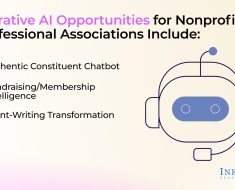
Abstract: This research document explores the concept of “personality nodes” and their potential role in achieving Artificial General Intelligence (AGI). It examines the advantages and limitations of this approach, while considering the broader challenges and ethical considerations surrounding AGI development.
Introduction:
The quest for AGI – a machine capable of human-level intelligence – remains a central focus in artificial intelligence research. One intriguing avenue explores the concept of imbuing AI with distinct personalities through the use of “personality nodes.” This document delves into the potential benefits and drawbacks of this approach, analyzing its contribution to the overall goal of AGI.
The Promise of Personality Nodes:
- Diversity of Thought: A variety of personality nodes could foster diverse thought processes within an AGI. This could allow the AGI to approach problems from multiple angles, leveraging both analytical logic and creative thinking.
- Social Intelligence: Personality nodes could equip an AGI with social intelligence, enabling it to navigate complex human interactions and respond appropriately in different situations. For example, a playful personality might be more effective in connecting with children, while a more serious one could excel in professional settings.
- Grounded Learning: By integrating personality with learning algorithms, an AGI could become adept at understanding and responding to the nuances of human communication. This would allow it to learn and adapt more effectively in real-world situations.
Challenges and Considerations:
- The Hard Problem of Consciousness: Can an AGI with diverse personalities truly achieve consciousness? The question of subjective experience remains a significant hurdle in the quest for AGI.
- Integration and Cohesion: Merging a variety of personalities into a cohesive whole is a complex challenge. An AGI might struggle with internal conflicts or inconsistencies if its personality nodes aren’t carefully integrated.
- Ethical Considerations: The potential for manipulation or deception with multifaceted AI personalities raises significant ethical concerns. Responsible development and use of this technology are paramount.
The Road to AGI:
Personality nodes are likely just one piece of the AGI puzzle. Here’s what the future might hold:
- Synergy with Other Approaches: Personality nodes could work synergistically with other advancements in AI research, such as deep learning and advanced reasoning algorithms, to create a more robust and human-like AGI.
- Gradual Development: We might not see a sudden emergence of a fully functional AGI. Instead, expect a gradual evolution of AI capabilities, with personality nodes playing an increasingly important role as technology progresses.
- Human-Centered Development: The ultimate goal of AGI should be to benefit humanity. We must prioritize ethical considerations and ensure AI development is guided by human values.
Conclusion:
Personality nodes hold promise for the future of AI, potentially fostering diverse thought processes, social intelligence, and grounded learning within an AGI. However, significant challenges remain, including the question of consciousness, integration of personality nodes, and the ethical implications. The path to true AGI requires a multifaceted approach that considers these challenges and ensures responsible development for the betterment of humanity.
Further Research:
This document highlights the need for further research in several key areas:
- The nature of consciousness and its potential emulation in machines.
- Techniques for seamless integration of diverse personality nodes within an AGI.
- Robust ethical frameworks to guide the development and use of AGI with multifaceted personalities.
By addressing these areas of research, we can move closer to achieving a future where AGI serves as a valuable tool for humanity.
Personality Nodes and Their Potential Impact on Artificial General Intelligence (AGI)
Abstract: This research document explores the concept of “personality nodes” and their potential role in achieving Artificial General Intelligence (AGI). It examines the advantages and limitations of this approach, while considering the broader challenges and ethical considerations surrounding AGI development. Additionally, the document explores the potential of combining personality nodes with deep learning and intelligent agents to create a more robust and versatile AGI.
Introduction:
The quest for AGI – a machine capable of human-level intelligence – remains a central focus in artificial intelligence research. One intriguing avenue explores the concept of imbuing AI with distinct personalities through the use of “personality nodes.” This document delves into the potential benefits and drawbacks of this approach, analyzing its contribution to the overall goal of AGI. Furthermore, it investigates the potential for a synergistic relationship between personality nodes, deep learning, and intelligent agents in achieving AGI.
The Promise of Personality Nodes:
• Diversity of Thought: A variety of personality nodes could foster diverse thought processes within an AGI. This could allow the AGI to approach problems from multiple angles, leveraging both analytical logic and creative thinking.
• Social Intelligence: Personality nodes could equip an AGI with social intelligence, enabling it to navigate complex human interactions and respond appropriately in different situations. For example, a playful personality might be more effective in connecting with children, while a more serious one could excel in professional settings.
• Grounded Learning: By integrating personality with learning algorithms, an AGI could become adept at understanding and responding to the nuances of human communication. This would allow it to learn and adapt more effectively in real-world situations.
Challenges and Considerations:
• The Hard Problem of Consciousness: Can an AGI with diverse personalities truly achieve consciousness? The question of subjective experience remains a significant hurdle in the quest for AGI.
• Integration and Cohesion: Merging a variety of personalities into a cohesive whole is a complex challenge. An AGI might struggle with internal conflicts or inconsistencies if its personality nodes aren’t carefully integrated.
• Ethical Considerations: The potential for manipulation or deception with multifaceted AI personalities raises significant ethical concerns. Responsible development and use of this technology are paramount.
The Power of Synergy: Personality Nodes, Deep Learning, and Agents
Beyond the individual potential of personality nodes, a particularly promising approach lies in their synergy with other advancements in AI research:
• Deep Learning: Deep learning algorithms excel at pattern recognition and learning from vast amounts of data. Integrating deep learning with personality nodes could enable the AGI to continuously improve its decision-making capabilities and understanding of the world, while the personality node guides the interpretation of the learned data through a specific lens.
• Intelligent Agents: Intelligent agents can take initiative, solve problems, and navigate complex environments. Combining agent technology with personality nodes and deep learning could create an AGI that can not only think but also act autonomously in the real world, with its personality influencing its actions and interactions within that environment.
Automatic Decisions with a Human Touch
This synergy opens doors for automatic decisions based on prompts and personality. Imagine a user providing a prompt, and the AGI analyzes it through the lens of its chosen personality node. This, combined with deep learning insights, could lead to the AGI taking an appropriate action that reflects both its personality and the objective analysis of the situation. For example, a playful personality might respond to a research prompt with a humorous quip before diving into the task using its deep learning capabilities, while a serious one might get straight to work with a more analytical approach.
Benefits of a Synergistic Approach
This combined approach offers several advantages:
• Contextual Decision-Making: The AGI’s personality and deep learning capabilities would allow it to consider context when making decisions. This would lead to more nuanced and human-like responses.
• Reduced Bias: A diverse range of personality nodes could mitigate bias in the AGI’s decision-making process. By considering different perspectives, the AGI could arrive at more balanced conclusions.
• Flexibility and Adaptability: The AGI could adapt its decision-making style based on the situation and the user’s personality. Imagine an AGI that can be both a playful companion, using humor to engage a user, and a serious collaborator, employing deep learning for complex problem-solving.
Challenges and Considerations
Of course, there are hurdles to overcome:
• Complexity of Integration: Merging these three elements – personality nodes, deep learning, and agents – into a cohesive system is a significant engineering challenge.




